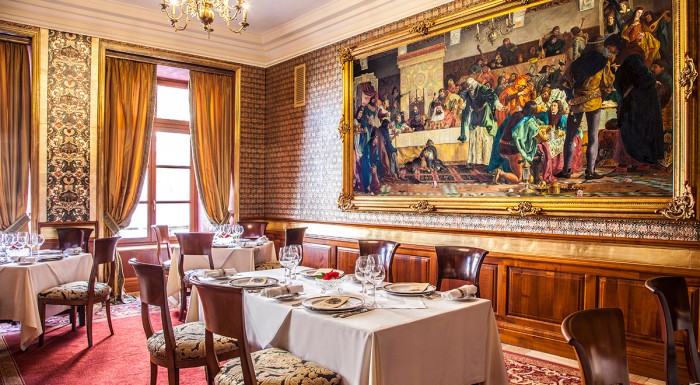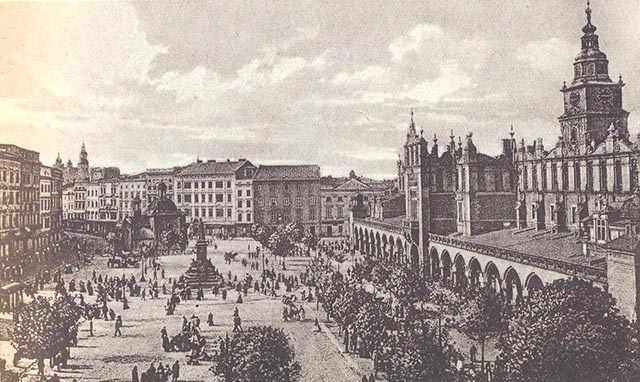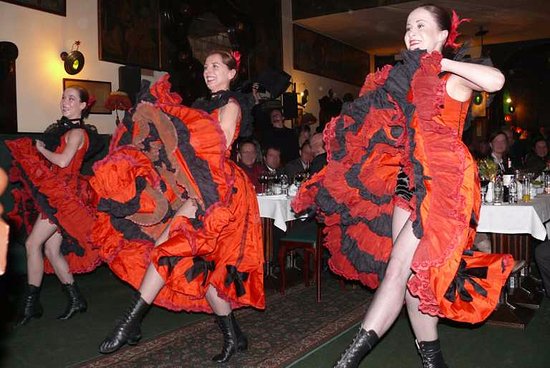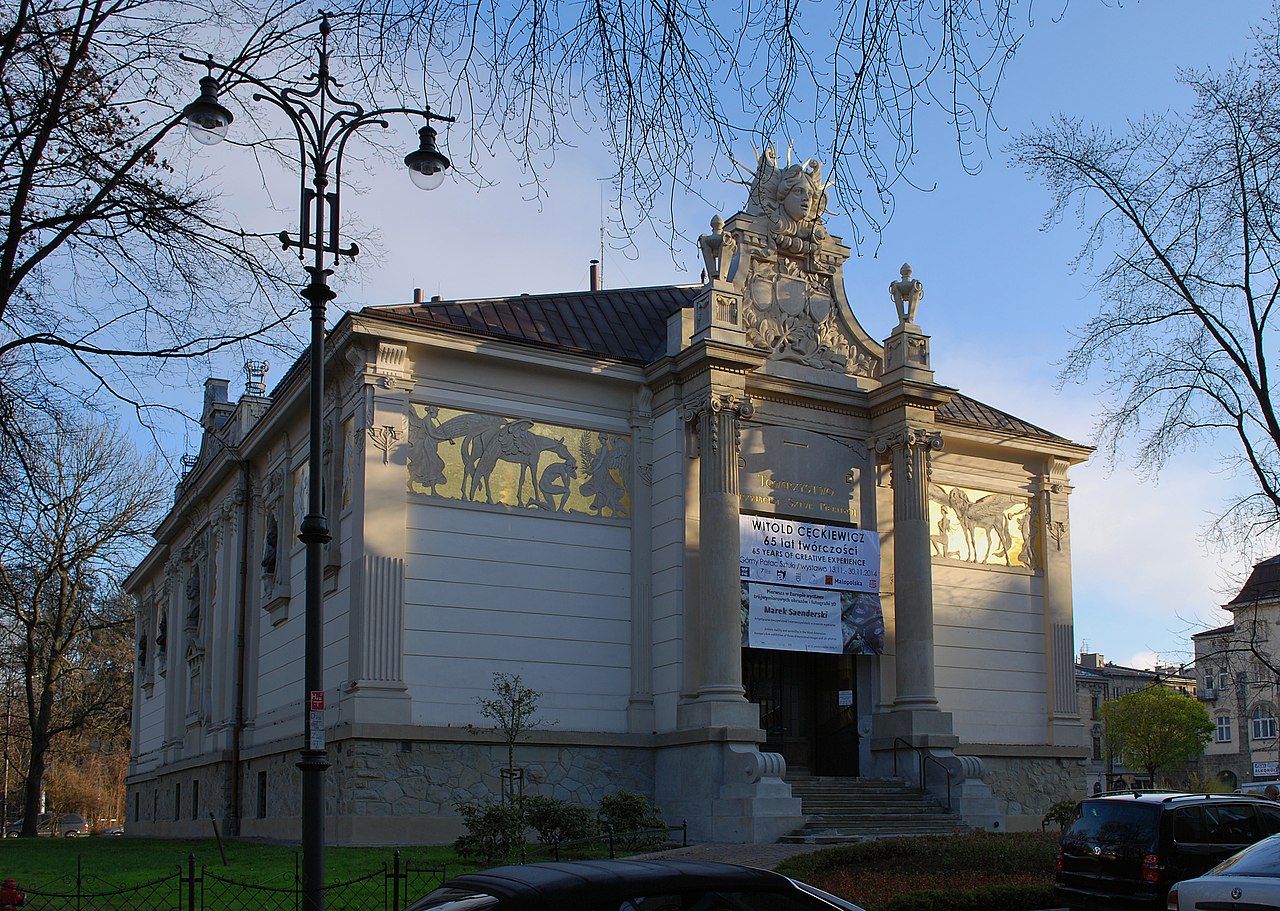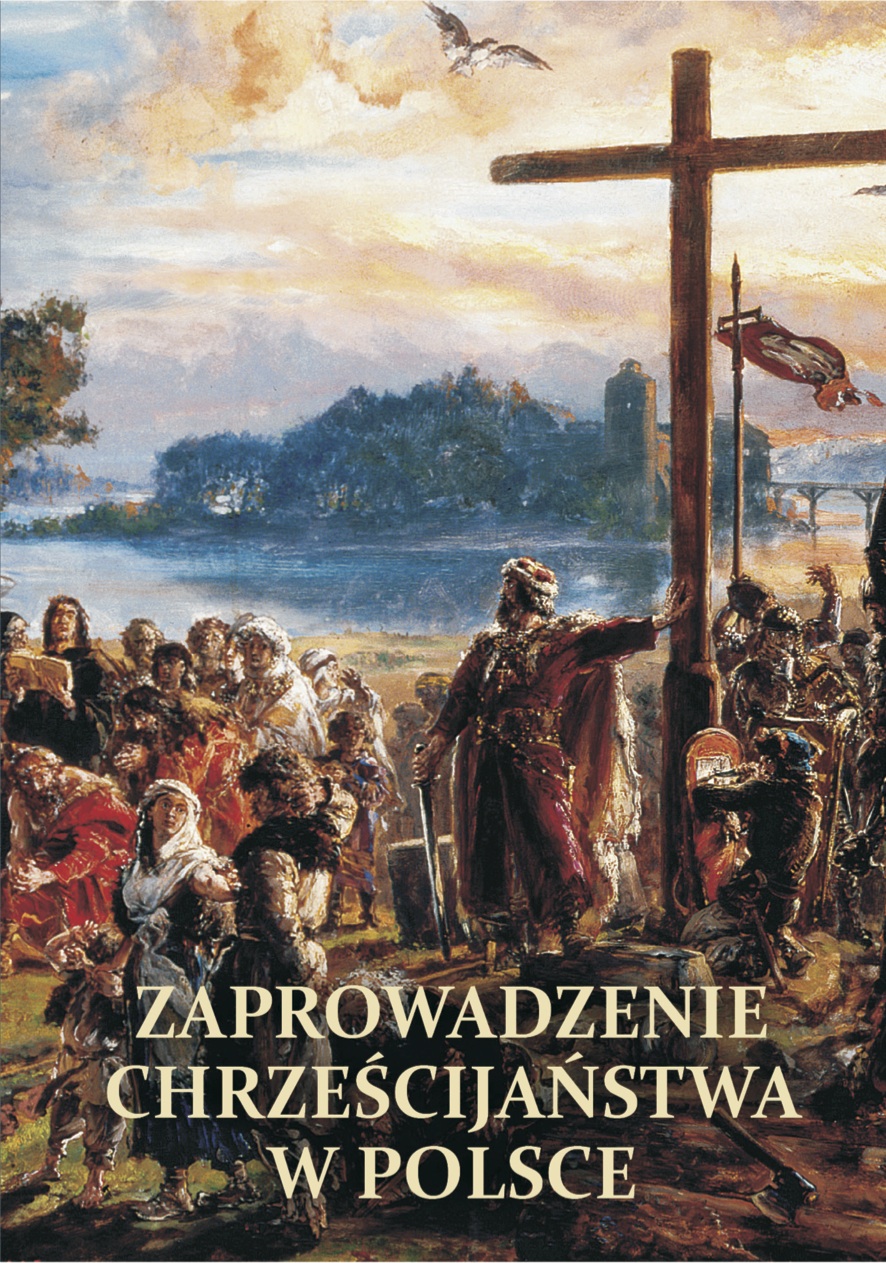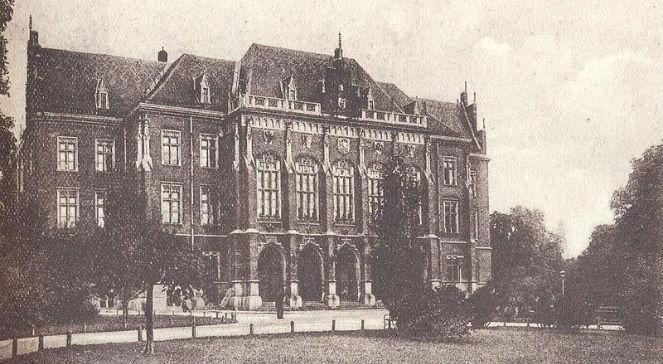ROZWÓJ SZTUKI TEATRALNEJ W KRAKOWIE
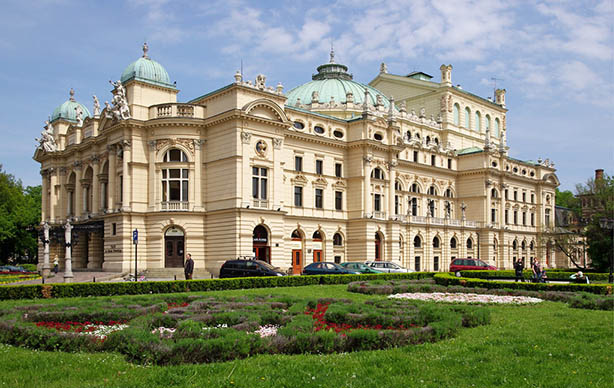
Początki widowisk teatralnych w Krakowie datują się już od w. XII. Mają one charakter religijny, do których stopniowo wplata się ludowy humor. Przedstawienia jasełkowe, początkowo urządzane w kościołach, w wieku XV przenoszą się do środowiska ludowo-mieszczańskiego.
Po założeniu Akademii Krakowskiej (1364 r.), młodzież studiująca inicjuje z wielkim zamiłowaniem widowiska o charakterze świeckim, czerpiąc z tematyki antycznej, posługując się głównie łaciną. Wawel był niejednokrotnie świadkiem takich widowisk.
Okres Odrodzenia, a więc czasy ostatnich Jagiellonów, sprzyjały rozwojowi rybałtowskich popisów. Tu już rozbrzmiewa mowa polska.
Teatr w pełnym znaczeniu tego słowa powstaje w Krakowie dopiero w XVIII w. Zapoczątkowuje go starosta brzegowski Jacek Kluszewski, dając widowiska w Ratuszu i Pałacu Spiskim. Odwiedza wtedy Kraków ojciec sceny polskiej, Wojciech Bogusławski. W roku 1799 buduje Kluszewski z trzech kamienic przy ul. Jagiellońskiej i Placu Szczepańskim teatr, nazwany obecnie im. H. Modrzejewskiej (dawniej Stary Teatr). Przetrwał on do czasów obecnych i jest obok teatrów dworskich w Łazienkach i Pomarańczami w Warszawie najstarszą budowlą tego typu.
W r. 1830 przerobiono nieczynny kościół św. Urszuli przy ul. św. Jana (obecny nr 22) na teatr, w którym odbywały się prapremiery „Ślubów Panieńskich”, „Pana Jowialskiego“ i „Dożywocia“ — Fredry. W r. 1851 odbywa się polska prapremiera „Mazepy“ Słowackiego.
Po upadku rewolucji 1846 r. usiłują Austriacy zgermanizować teatr krakowski, wprowadzając dyrektorów niemieckich i przewagę sztuk, granych w języku niemieckim.
W 1863 r. obejmuje scenę krakowską St. Koźmian. Następuje dwudziestoletni okres rozkwitu sceny krakowskiej, który upamiętnił się prapremierami „Konfederatów Barskich” (1872 r.) Mickiewicza, piętnastu sztuk Szekspira (pierwszy raz w Polsce, tłumaczonych z oryginału), „Fausta” i „Egmonta” Goethego, wreszcie cyklu komedyj Musseta. Teatr ten kultywuje naszą rodzimą sztukę dramatyczną wystawiając wszystkie znalezione po zgonie A. Fredry jego komedie. Z twórczości Słowackiego wystawiono pierwszy raz w Polsce: „Mindowe”, „Beatrix Cenci”, „Książę Niezłomny”, „Fantazy”, „Horsztyński” oraz pierwszy raz w Krakowie „Balladynę” i „Lilię Wenedę”.
Powstaje wtedy swoisty styl odtwarzania postaci dramatycznych, określony mianem „szkoły krakowskiej”, którą charakteryzowały cechy wyróżniające i dziś dobry teatr: pozbawienie nadmiernego patosu, dobra dykcja, powściągliwa ekspresja i świetny dialog.
W r. 1882 pali się wiedeński Ringteater, wskutek czego władze nakazują, ze względu na niebezpieczeństwo pożaru, zamknięcie teatru przy ul. Jagiellońskiej na cały rok. Przez ten czas, przy dawnej ul. Wolskiej (dziś Ulica Marszałka Józefa Piłsudskiego), w przystosowanej na ten cel stolarni, teatr działa nadal, uświetniony nawet występami Heleny Modrzejewskiej.
W toczących się dyskusjach na temat potrzeby budowania nowego gmachu teatralnego zapada decyzja założenia nowego teatru na miejscu zburzonego siedemnastowiecznego szpitala św. Ducha. Budowlę, projektowaną przez architekta J. Zawiejskiego rozpoczęto w 1891 r., otwierając uroczyście teatr 21. X. 1893 r. Teatr zostaje nazwany im. J. Słowackiego, w stulecie jego urodzin — 1909 r.
W r. 1902, przy ul. Krowoderskiej nr 31, w sali introligatora Oleszniaka, powstaje pod dyrekcją Knake-Zawadzkiego Teatr Ludowy, na którego deskach występują Jaracz, Osterwa, Węgrzyn. Następnie dyrektor polskiego teatru z Poznania Rygier prowadzi Teatr Ludowy przy ul. Rajskiej.
Obecnie Kraków posiada następujące teatry:
Teatr im. J. Słowackiego,
Teatr im. H. Modrzejewskiej (dwie sale),
Teatr Młodego Widza,
Teatr Kukiełkowy „Groteska”,
Teatr Ludowy w Nowej Hucie,
Amatorski Teatr Kolejarza.
W projekcie — wznowienie sceny eksperymentalnej p. n. Teatru Rapsodycznego, ewent. Teatru Poezji. Sporadyczne przedstawienia dają:
Opera na scenie teatru im. Słowackiego,
Teatr Muzyczny — operetka,
Teatr Cricot II,
Teatr 38 — studencki — eksperymentalny,
Piwnica — kabaret artystyczny.

